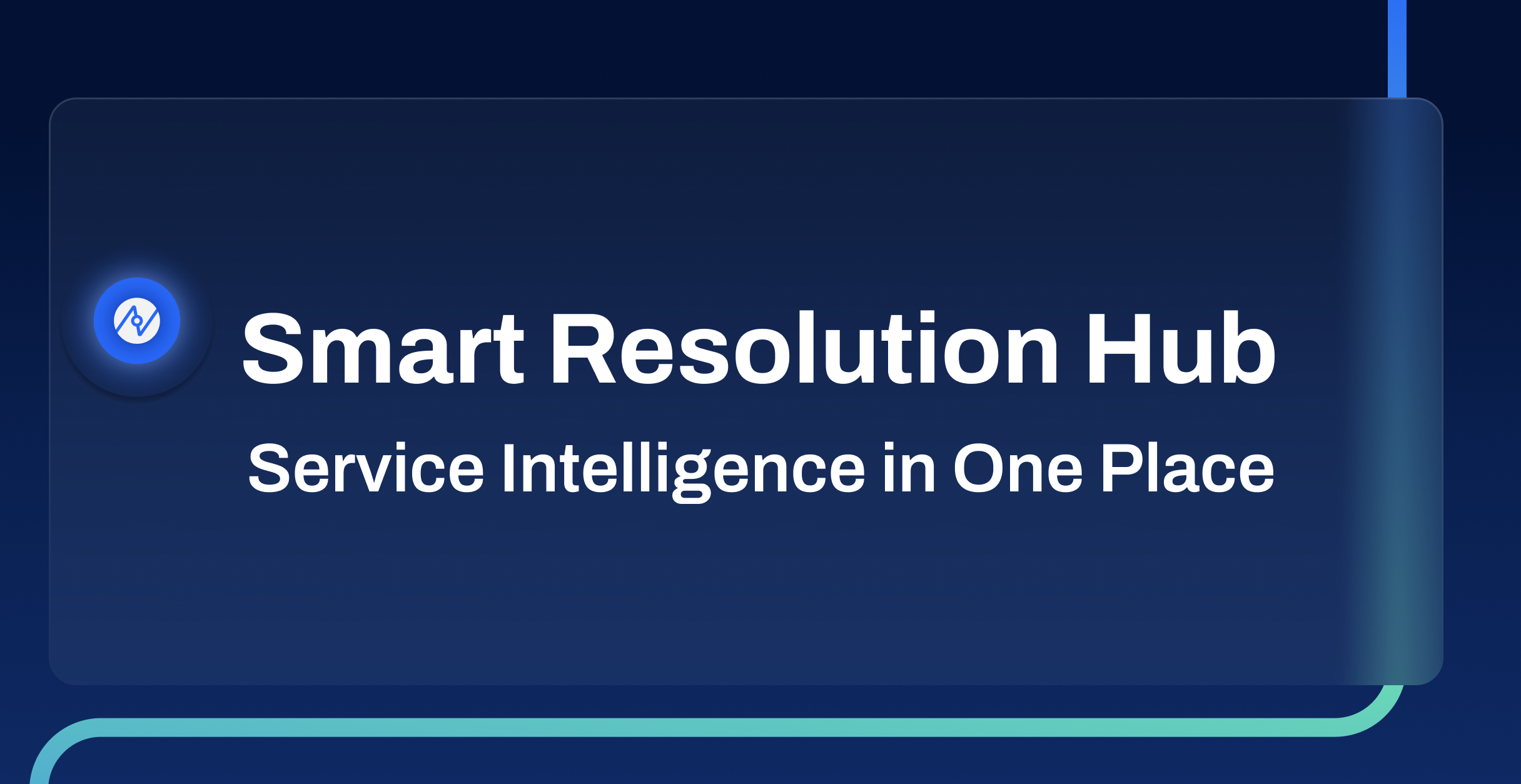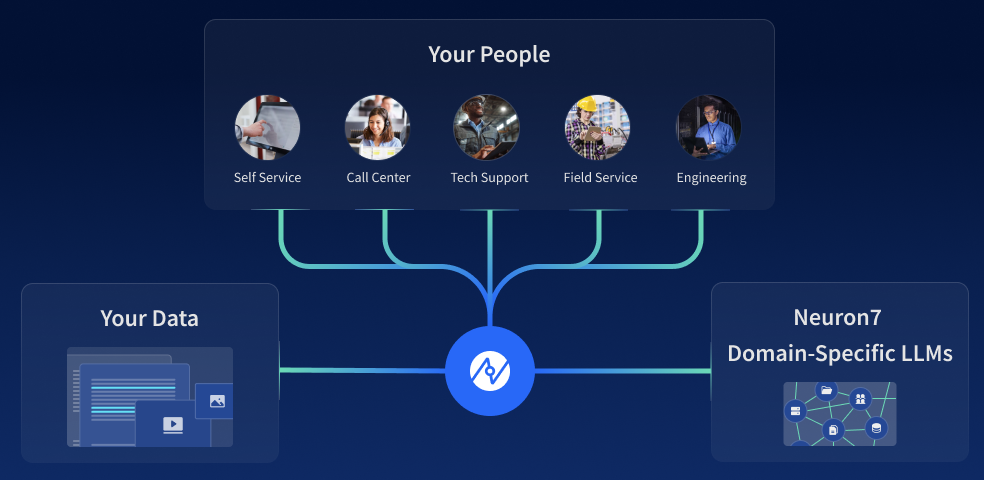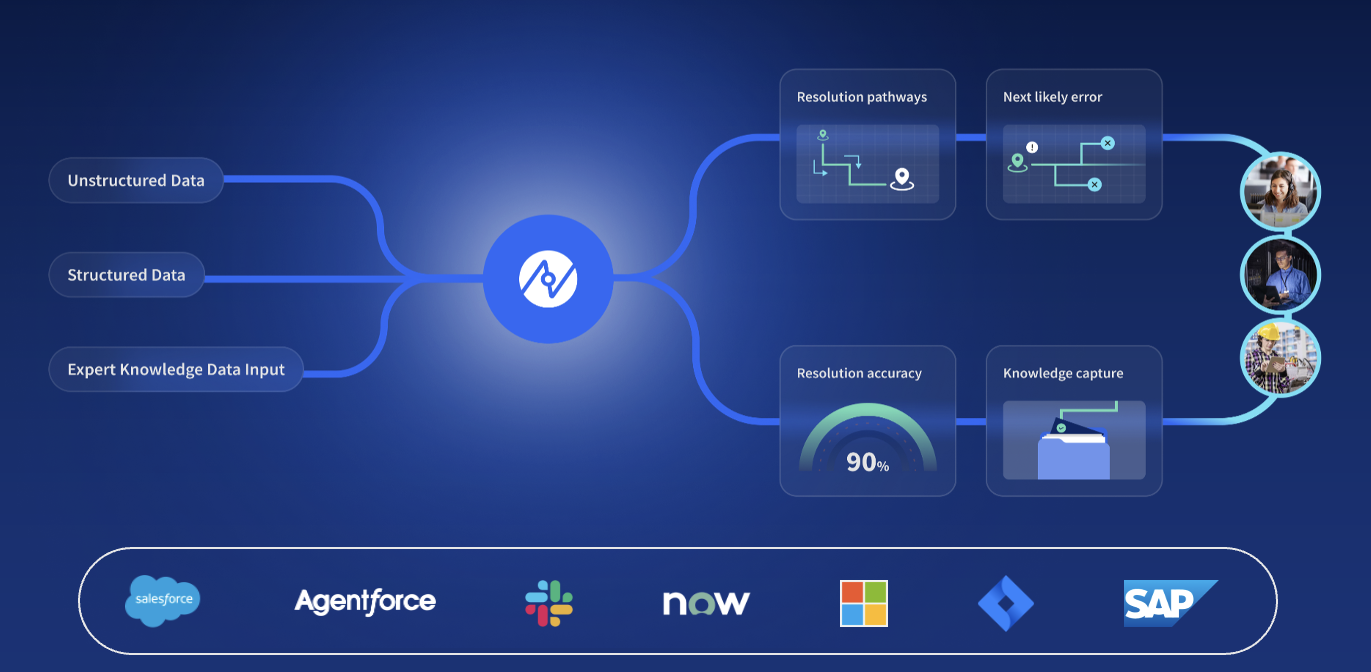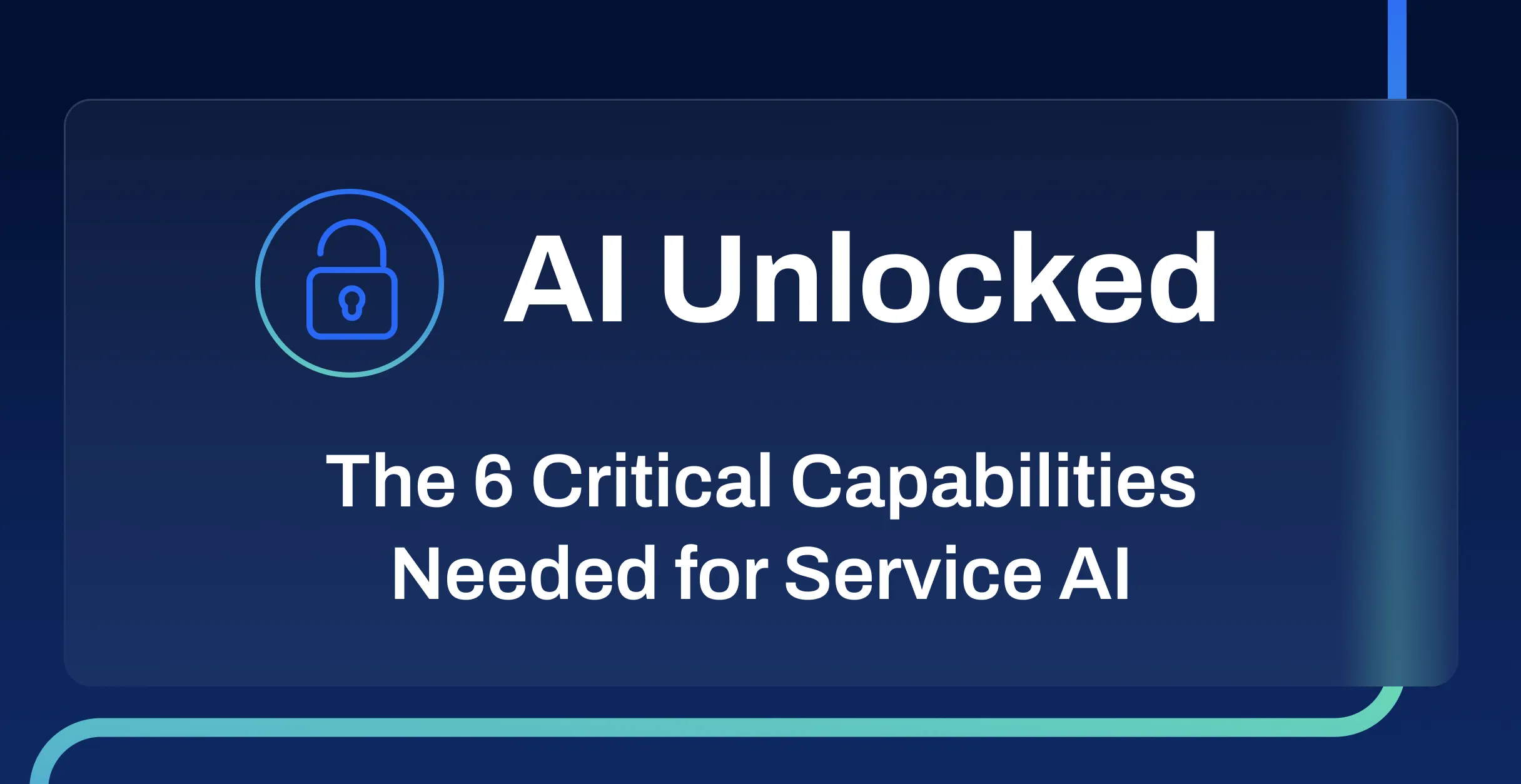Smart Resolution Hub: How Service Teams Centralize Knowledge

When solving customer issues, quick access to knowledge is key. Whether a customer is using a self-service portal, calling a support center, or relying on a field technician, the quality of their experience hinges on one thing: access to accurate, up-to-date information.
However, service knowledge is often fragmented. It lives in disconnected systems, scattered documents, siloed teams, and in the minds of subject matter experts. To meet rising customer expectations and reduce service costs, organizations must treat knowledge as a core asset and centralize it across the entire service continuum.
The way to do this is with a Smart Resolution Hub. Using AI, service organizations can now create these hubs, which centralize knowledge and continuously learn from thousands of people, data, and interactions across their specific service environments. Most importantly, they dramatically increase the likelihood that the right person will get the right answers at the right time.
The Service Knowledge Ecosystem
In addition to learning from everyone who uses it, a Smart Resolution Hub must be built to understand the knowledge needs and challenges of all users. Teams and individuals who depend on a Smart Resolution Hub include:
- Customer Support. Handles high volumes of inquiries and often relies on scripts, knowledge articles, and “cheat sheets.”
- Customer (Self-Service). Depends on online FAQs, help centers, and chatbots.
- Field Service Technicians. Rely on mobile apps, printed manuals, or calls back to tech support to access critical knowledge.
- Technical Support. Depend on engineering documentation, past case histories, and internal tools.
- Engineering / Product Teams. Hold deep technical knowledge and insights—which other teams in the ecosystem depend on for resolutions.
- Director / Head of Support Operations, Field Service, or Knowledge Management. Oversee day-to-day operations of frontline teams and/or the creation, curation, and distribution of support content internally and externally.
- VP, Service / VP, Customer Support. Oversee team and organizational performance and set KPIs for average handle time (AHT), first call resolution (FCR), customer satisfaction score (CSAT), and more.
- CIO / VP, IT. Responsible for IT strategy, systems integration, and digital transformation.
- Chief Customer Officer. Owns end-to-end customer experience, with a focus on satisfaction, retention, and net promoter score (NPS).
- Chief Revenue Officer / VP, Sales. Drives growth, renewals, and service-to-revenue alignment.
The Problem: Knowledge Silos and Fragmentation
Each tier within the service knowledge ecosystem depends on tools to access and share knowledge, but they’re not always the same. This broad array of tools includes CRM platforms, ticketing systems, field service apps, knowledge bases, shared drives, spreadsheets, case notes, and more.
Some common problems with decentralized knowledge include:
- Customer support and call centers waste valuable time searching for up-to-date information for resolutions, sometimes resulting in unnecessary escalations.
- Customers are unable to get fast, accurate answers because self-service knowledge is outdated or disconnected from deeper technical expertise.
- Field service can’t access the latest fixes, resulting in second visits and longer downtimes.
- Tech support lacks visibility into recurring issues captured by the frontlines so they go undiagnosed and fixes aren’t reusable.
- Product and engineering can’t effectively share their knowledge and insights to support frontline teams.
These challenges create problems for an organization’s directors, VPs, and the C-suite, who are ultimately responsible for meeting KPIs, keeping costs down and customers satisfied, building productive and happy teams, and driving revenue for the business.
The Solution: A Unified Smart Resolution Hub
Centralizing service knowledge isn’t about dumping documents into a repository or getting experts to write down everything they know. It’s about an entirely new way to capture issues and resolutions with AI that automates optimization, is easily accessible, and is actionable across every tier.
Neuron7 develops a unique, dedicated Smart Resolution Hub tailored to every customer, transforming how complex service organizations capture and share knowledge. Powered by a multi-LLM approach and learning from each customer’s service data, the Smart Resolution Hub reflects that customer’s specific products, structure, and workflows.
How it works:
A Single Source of Truth
Neuron7 uses AI to understand service issues and resolutions from data and people across your service organization. With Neuron7’s technology and support, your organization gets a Smart Resolution Hub that predicts the best resolution path and turn-by-turn guidance for every issue.

Learns from Every Interaction
Neuron7’s AI learns from every interaction, giving technicians and support agents an easy way to document fixes, workarounds, and lessons learned. With AI, knowledge capture happens automatically and dynamically, creating a single source of truth that never becomes stale.
Designed for All Service Tiers
Service knowledge is often siloed across platforms and service levels because different teams need access to different formats.
High-level summaries support customer self-service, while procedural content helps call center agents. Field technicians need diagnostic guidance, and engineers rely on detailed documentation.
With a Smart Resolution Hub, only the most relevant, accurate information is delivered to individuals across the ecosystem at the point of impact.
Break the Silos
When support agents, field techs, and engineers contribute to a shared Smart Resolution Hub, the entire service chain becomes smarter and faster. You can resolve issues faster, increase efficiency, make life easier for employees, and generate unprecedented business insights into product and service performance.
Make it Accessible
Neuron7 integrates with your existing CRM, chat, field service tools, and support platforms. As the go-to source for all service-related information, everyone in the ecosystem has access to the latest, best resolution information at the level that’s helpful to them.

The Future of Service Knowledge
Service organizations can no longer afford to operate in knowledge silos. As products grow more complex and customer expectations rise, a centralized, evolving single source of service intelligence is the backbone of efficient, scalable support.
By unifying knowledge across the service continuum, and keeping it fresh, organizations can reduce costs, improve employee confidence, and deliver a world-class customer experience at every touchpoint.
Build Your AI Strategy
Start building your AI roadmap now. Visit the AI Strategy Resource Center or contact us to chat about your service AI strategy.



